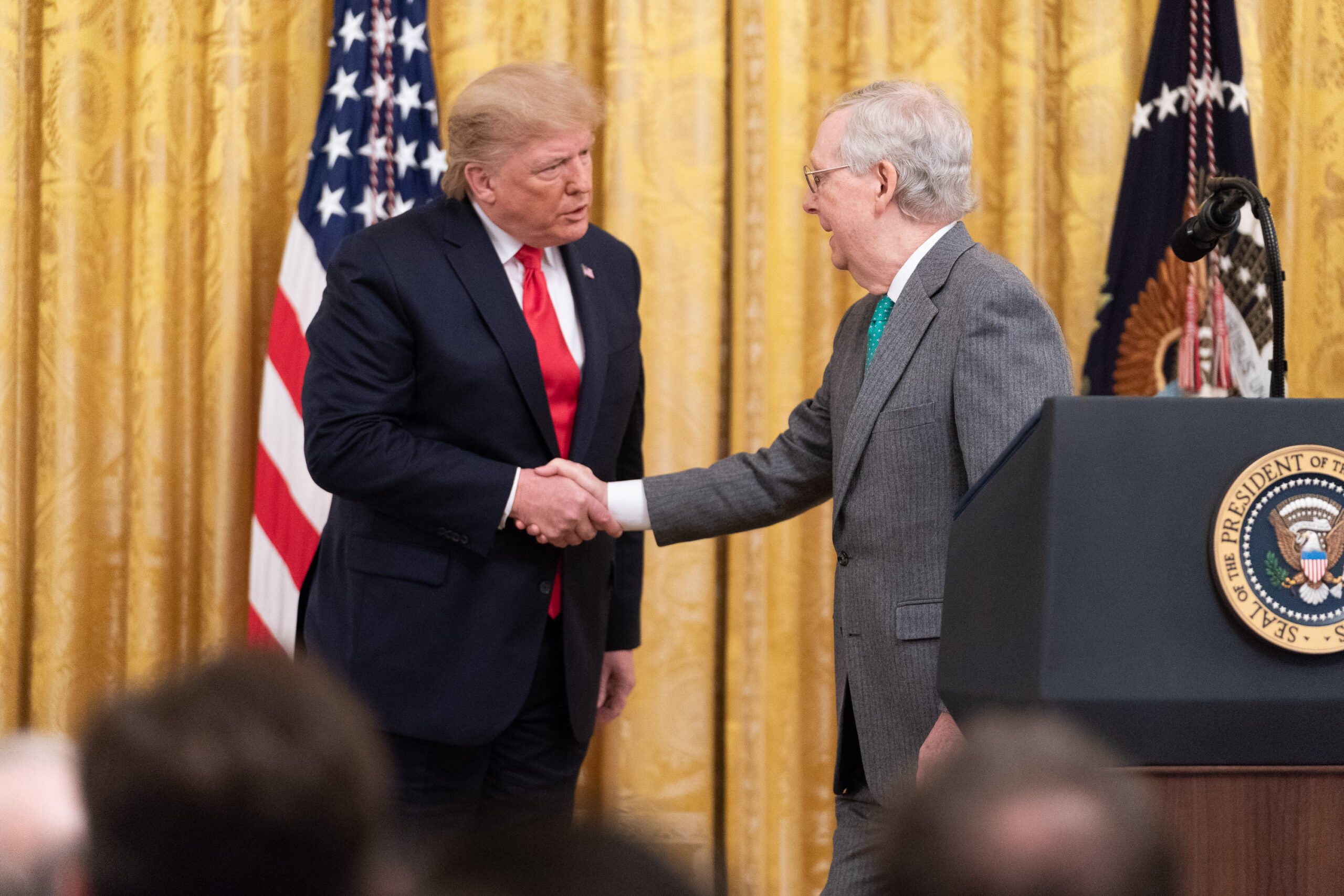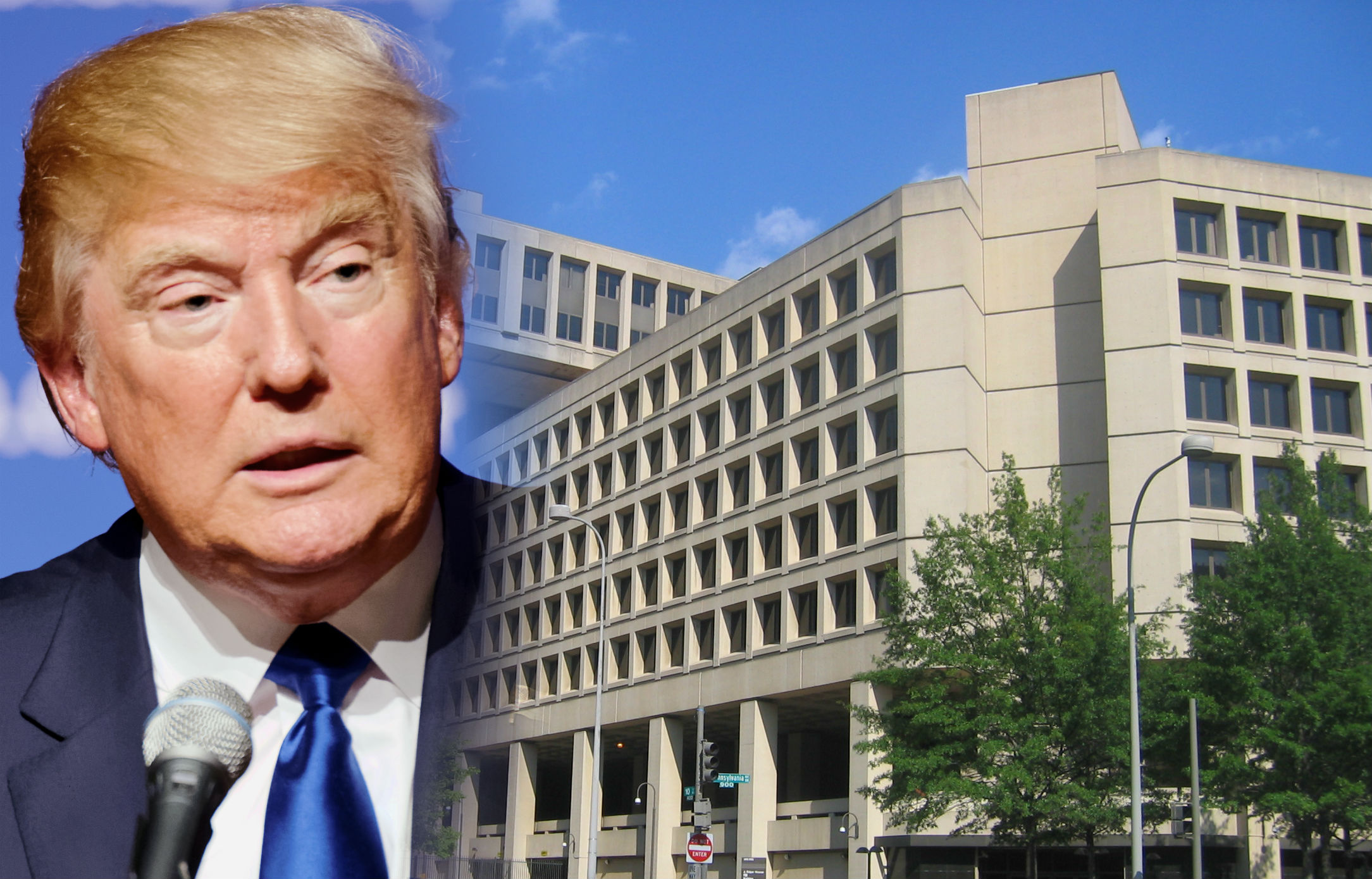
Trump’s Interference in the FBI Headquarters Relocation Plan
American Oversight is investigating Trump's involvement in the decision to rebuild the FBI headquarters — which happens to sit a block away from his hotel.

Background
For more than a decade, the FBI sought congressional funding to move its headquarters from the deteriorating J. Edgar Hoover Building in downtown Washington, D.C., to the suburbs — a cost-saving plan that would address serious security concerns and free up prime downtown real estate. So when the Trump administration canceled the project in July 2017 and then seven months later announced plans to rebuild at the downtown site, which sits a block away from the Trump International Hotel, eyebrows rose.
In late summer 2018, after reports surfaced that President Donald Trump was personally involved in that decision, the inspector general of the General Services Administration found that GSA Administrator Emily Murphy may have misled Congress earlier in the year about the extent of Trump’s involvement — and that the agency had not accurately estimated the costs of the rebuilding.
The inspector general report also mentioned three meetings GSA officials had with the White House about the rebuilding plan. During a December 2017 meeting, Murphy met with then–White House Chief of Staff John Kelly and Mick Mulvaney, who was then the director of the Office of Management and Budget, where she may have been told that the president wanted to be updated on the project. A month later, during another White House meeting, Murphy met with Kelly and Mulvaney, as well as with Deputy Attorney General Rod Rosenstein and FBI Director Christopher Wray, in Kelly’s office, before moving to the Oval Office to meet with Trump. The third meeting occurred in June 2018 at the White House, and included Murphy, the president, Kelly, Rosenstein, Wray, and other officials, including OMB’s deputy director.
American Oversight filed 18 Freedom of Information Act requests to the relevant agencies (the Department of Justice, FBI, OMB, and GSA) for records of these three meetings as well as any communications those agencies had with the White House or key people from the Trump Organization.
In late October 2018, after the agencies failed to turn over records, American Oversight filed a suite of lawsuits to compel the release of requested documents. In March 2020, a judge ruled in our lawsuit against the OMB that the office had unlawfully restricted its search for records and that it must conduct a new search. In April, another federal judge ruled in our lawsuit against the GSA, OMB, DOJ, and FBI that the agencies had also conducted inadequate searches.
Meanwhile, American Oversight continues to investigate the role Trump and the Trump Organization played in the decision to reverse the FBI’s long-standing plans — and whether personal enrichment and a desire to shield his namesake hotel from competition were behind the president’s interest in the rebuilding project.
